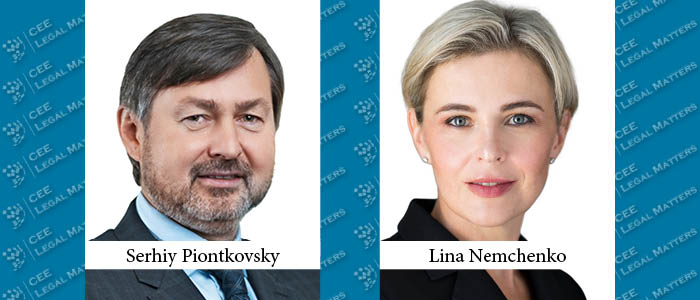On 16 August 2024, the Resolution of the Cabinet of Ministers of Ukraine as of 9 August 2024 No. 925 ("Amending Resolution") became effective and introduced amendments to the Resolution of the Cabinet of Ministers of Ukraine as of 18 March 2022 No. 314 "On Certain Issues of Ensuring of Carrying Out Commercial Activities During Martial Law" ("Resolution on Simplified Licensing Procedure").
The Amending Resolution is aimed at stipulating the possibility for certain non-residents to carry out commercial activities in the construction of objects of medium (CC2) and significant (CC3) consequences during martial law.
Key takeaways
Non-residents (foreign companies, organizations) that carry out their activities in Ukraine exclusively through permanent establishments (PE) will be able, for a period of martial law, to obtain the right to carry out commercial activities in the construction of objects of medium (CC2) and significant (CC3) consequences without the need to obtain license to construct CC2 and CC3 objects.
A right to carry out such activities can be obtained by way of free-of-charge submission of declaration (which will contain information prescribed by the Amending Resolution) to the licensing authority.
Background
Licensing of activities in the construction of CC2 and CC3 objects prior to the introduction of the martial law
According to the Law of Ukraine "On Licensing of Types of Commercial Activities", certain types of works in the construction of objects, which according to their consequence are classified as objects of medium (CC2) and significant (CC3) consequences, are subject to licensing ("Legislative Licensing Requirement").
The types of works subject to licensing and the respective licensing requirements were set out by the Resolution of the Cabinet of Ministers of Ukraine as of 30 March 2016 No. 256 "On Certain Issues in Licensing of Construction of Objects of Medium or Significant Class of Consequences" ("Resolution on Licensing").
Formally, neither the Legislative Licensing Requirement nor the Resolution on Licensing provided for an explicit prohibition on issuing such licenses to non-residents. However, given that the model application for obtaining such a license required the identification code of the legal entity according to the Unified State Register of Legal Entities, Private Entrepreneurs and Public Associations ("Register"), and the licensing authorities compared the information in the application with the information from the Register, non-residents were de facto deprived of the ability to obtain such license.
On 18 March 2020, the Resolution on Licensing was abolished. At the same time, the government did not adopt the new licensing requirements or the new list of types of works for the construction of CC2 and CC3 objects subject to licensing. In the absence of the licensing requirements, actual compliance with the Legislative Licensing Requirement was not possible for all parties interested in obtaining such license. Additionally, in the absence of government-approved types of works subject to licensing, the Legislative Licensing Requirement remained non-specific as it did not contain such a list of works but relied on acts of the Cabinet of Ministers of Ukraine to specify such types of works.
The absence of the list also prompted lenient interpretations of the Legislative Licensing Requirement such that no works related to the construction of CC2 and CC3 objects were subject to such licensing.
Licensing of activities in the construction of CC2 and CC3 objects following the introduction of martial law
On 19 March 2022, the Resolution on Simplified Licensing Procedure became effective and introduced, for a period of martial law — a rather simplified procedure for carrying out certain types of activities subject to licensing (in particular, without limitation, commercial activities for the construction of CC2 and CC3 objects) or subject to obtaining permitting documents.
For a period of martial law, such a simplified procedure provides for free-of-charge submission to the respective authorities of declarations on carrying out certain commercial activities without the need to obtain licenses or other permitting documents.
The Amending Resolution introduced amendments to the Resolution on Simplified Licensing Procedure and explicitly enabled, for a period of martial law, non-residents (foreign companies, organizations) that carry out their activities in Ukraine exclusively through permanent establishments to obtain the right to carry out commercial activities for the construction of CC2 and CC3 objects by way of free-of-charge submission of declarations to the licensing authority. The Amending Resolution also introduced a separate list of information to be included in such declarations by non-residents.
The above legislative developments are worth noting as they explicitly contemplate non-residents' right to carry out activities in the construction of CC2 and CC3 objects and allow non-residents to enjoy the simplified procedure for obtaining such a right.
Please note that according to the Resolution on Simplified Licensing Procedure, those who obtain the right to carry out a particular commercial activity based on a declaration (non-residents included) will be required to apply to the licensing authorities to obtain licenses under a general procedure no later than three months after martial law is terminated or cancelled. As of today, the statutory regulation on the general procedure for licensing of activities related to the construction of CC2 and CC3 objects remains unchanged and as described above in the section "Licensing of activities for the construction of CC2 and CC3 objects prior to the introduction of martial law".
By Serhiy Piontkovsky and Lina Nemchenko, Partners, Baker McKenzie


